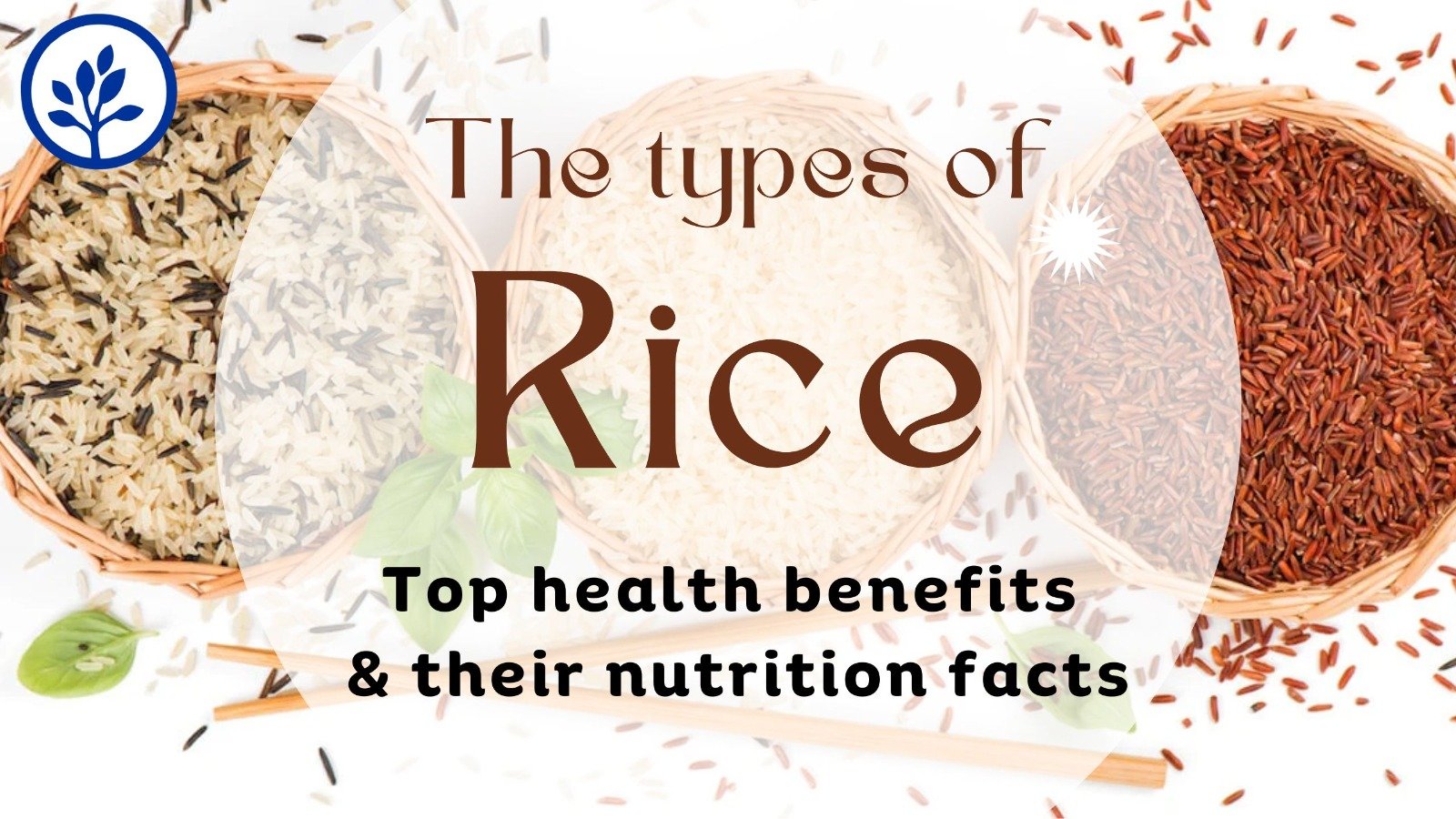Welcome to our blog, where we explore the growing trend of embracing an organic lifestyle in today's world. Every day, more individuals are choosing to incorporate organic products into their lives, and there is a significant demand for such items. One such popular organic product is rice, celebrated for its contributions to a healthier lifestyle and environmental sustainability. Join us as we delve into the various types of rice and uncover the numerous benefits it brings.
What is Rice?
Rice stands out as one of the most widely consumed staples globally, particularly in Asia where its consumption is notably high due to the large population. This essential food source is rich in carbohydrates. There are various types of rice, categorized into long-grain, medium-grain, and short-grain varieties. These grains come in different colors, such as white, brown, red, and black.
White rice undergoes a polishing process to remove the bran, resulting in its characteristic appearance. On the other hand, brown rice retains the bran layer, providing both fiber and a distinct flavor. The versatility of rice is evident in its use across a wide range of dishes, from savory options like pilaf and risotto to the sweetness of desserts and the iconic presence in sushi.
Type of Rice:
White Rice:
White rice is a staple in the diets of most people, commonly enjoyed as a primary source of carbohydrates. Its widespread consumption makes it a familiar and frequently consumed food for many individuals around the world.
Brown Rice:
Brown rice offers greater benefits compared to white rice, being low in starch and high in fiber. This nutritional profile makes it a healthier choice for those seeking a diet with reduced starch content and increased fiber intake.
Basmati Rice:
Basmati rice, known for its elongated grains, is commonly employed in biryani dishes due to its distinctive fragrance. The aromatic quality of basmati rice adds a delightful and appetizing aroma to the dishes it is used in, enhancing the overall culinary experience.
Black Rice:
It possesses a dark purple-black hue and is rich in antioxidants, offering a sweet taste.
Red Rice:
Red rice is beneficial for digestion, aids in weight loss, and contributes to skin care. Incorporating this nutritious grain into your diet can support overall well-being, offering a trifecta of advantages for digestive health, weight management, and skincare.
Top Health Benefit Of Organic Rice
High in antioxidant and phytochemical:
Brown rice outshines white rice with its abundant antioxidants and phytochemicals, offering a plethora of health benefits. Unlike its polished counterpart, brown rice is rich in compounds that contribute to overall well-being. These bioactive substances not only enhance nutritional value but also provide a protective shield against oxidative stress. Choosing brown rice over white rice is a smart dietary choice for those seeking a wholesome option with added health-promoting properties.
1. Phytochemical:
Phytochemicals, naturally occurring compounds found in plants, contribute to various health benefits. Brown rice, in particular, boasts a wealth of phytochemicals, including flavonoids, phenolics, and tannins. These bioactive substances not only add to the nutritional value of brown rice but also provide positive effects on health, making it a wholesome choice for those seeking natural and plant-derived compounds to support their well-being.
2. Antioxidants:
Brown rice serves as a rich source of antioxidants, harboring numerous beneficial compounds. These antioxidants are non-harmful and play a significant role in combating chronic diseases. The presence of these compounds in brown rice underscores its potential as a health-promoting food, offering protection against oxidative stress and contributing to overall well-being. Choosing brown rice as part of a balanced diet can be a proactive step toward supporting a healthy lifestyle and preventing chronic ailments.
3. Fiber :
Beyond antioxidants and phytochemicals, brown rice is a notable source of dietary fiber. The fiber content in brown rice is beneficial for digestive health. Consuming brown rice provides an essential contribution to overall well-being by promoting a healthy digestive system. Including brown rice in your diet not only offers nutritional advantages but also supports optimal digestion, making it a wise choice for those seeking a wholesome approach to their dietary habits.
Enhancing Immunity:
Numerous foods play a role in fostering a robust immune system, and while not every single item guarantees immunity, certain nutrients found in vegetables, fruits, and whole grains—such as brown rice—contribute to immune function. Brown rice is packed with beneficial nutrients that promote overall health, making it a valuable addition to a diet aimed at supporting and boosting the immune system.
1. Selenium:
Brown rice stands out as an excellent source of selenium, a vital mineral crucial for supporting a robust immune system.
2. Fiber:
Brown rice not only promotes environmental health but also contributes to immune system support, making it a key component in maintaining overall well-being.
3. Vitamins and Minerals:
Both brown and white rice are not just rich in vitamins; they also boast an abundance of essential nutrients, including B vitamins and minerals. This nutritional profile contributes to both health and immune system function.
Incorporating brown rice into your diet is key to maintaining a robust immune system and achieving a well-balanced lifestyle. A healthy regimen encompasses physical activity, sufficient sleep, and stress management. Including brown rice in your diet adds essential nutrients, contributing to overall health and aiding in the pursuit of a holistic and healthy lifestyle.
Control blood sugar level:
Rice plays a role in regulating blood sugar, influenced by both the type of rice and its cooking method. The choice of rice variety and portion size during preparation can impact blood sugar levels. Being mindful of these factors is essential for those seeking to manage and control their blood sugar through dietary choices.



